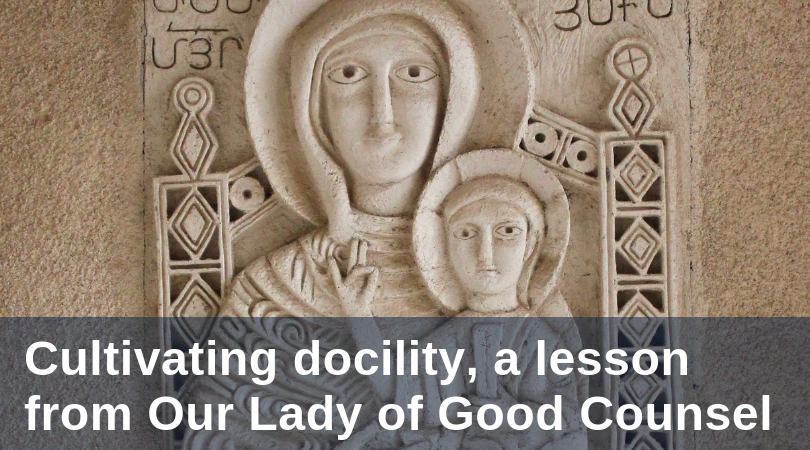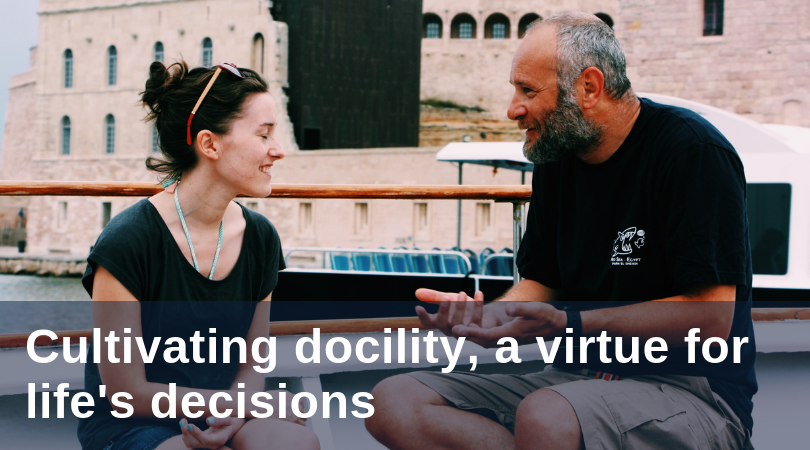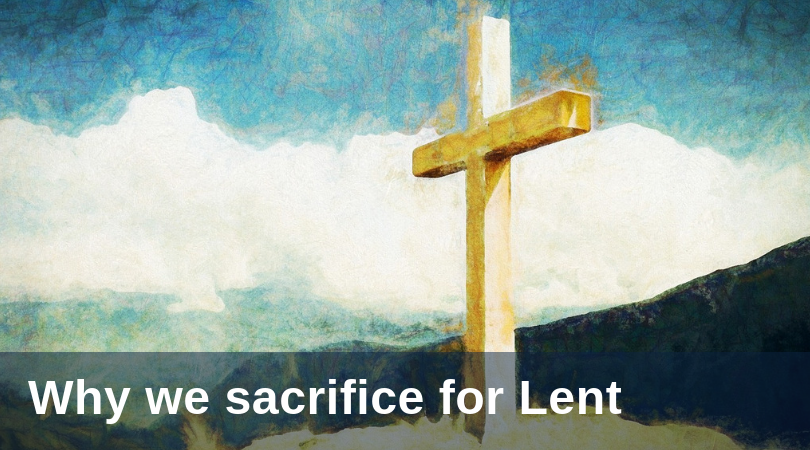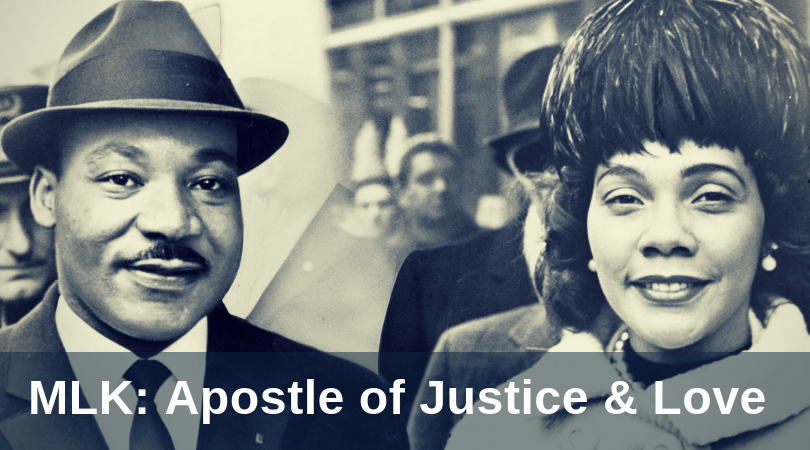Yesterday’s post discussed the human need for counsel on the path to heaven, an important point for today’s feast of Our Lady of Good Counsel. It is the virtue of docility, or “teachableness,” that opens our hearts and minds to receive counsel from prudent friends, mentors and teachers who are also seeking holiness.
Theresa Smart

Recent Posts
Cultivating docility, a lesson from Our Lady of Good Counsel
Topics: discipleship, prayer, Mary, saints, virtue, discernment
Cultivating docility, a virtue for life's decisions
It is not good for man to be alone (Gen. 2:18).
The ol’ rugged individualism used to be a mark of American pride, but our culture is discovering the folly of self-reliance.
Topics: discipleship, virtue, friendship, discernment
During Lent, the Church asks us to prepare for Christ’s passion and resurrection by making small sacrifices, traditionally in the form of prayer, fasting and almsgiving. But why do we sacrifice? What is a sacrifice, anyway?
Topics: Lent, prayer, traditions, devotions
This cold and dreary season is a time of waiting. Snow has grown stale, and we’re waiting for the flowers to bud; the joy of Christmas has passed, and we’re waiting for the vitality of Easter. Yet the Church reminds us that this Ordinary Time between great feasts is precisely the time for the spiritual growth that flows from delving more deeply into the mystery of Christ. Thankfully, even the tedium of waiting itself can contribute to our spiritual life! To see how, we need look no further than the virtue of longanimity.
Topics: discipleship, spirituality, virtue
Rev. Martin Luther King, Jr. on uniting justice and love
[We] bow together in grief before the shameful murder of Dr. Martin Luther King, Jr., a unique apostle of the non-violent drive for justice.1
Today we echo the Catholic, Protestant, Orthodox and Jewish leaders who together honored Rev. King after his death in 1968, exhorting Americans to take up his mantle as “apostles of justice.” But especially given today’s tense political climate, we should also remember his refusal to sever justice from love. If King was an “apostle of justice,” it’s because he was all the more an “apostle of love.”
Topics: Culture, discipleship, leadership, virtue, inspiration, holidays






